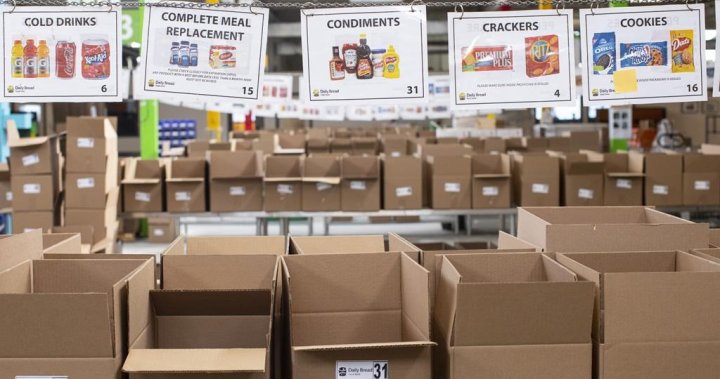A recent report from Food Banks Canada shows that the number of people utilising food banks nationwide increased to an all-time high earlier this year, with high inflation and low social assistance rates highlighted as important drivers in the rise.
According to the yearly report made public on Thursday, there were about 1.
5 million people visited food banks in March, which was a 15% increase from the same month last year and a 35% increase from March 2019—the month before the pandemic—visits.
The report, which looked at data from more than 4,750 food banks and community organizations, said the skyrocketing cost of food and housing, as well as high inflation and lowsocial assistance rates, have contributed to the rise in food bank usage.
The CEO of Food Banks Canada, Kirstin Beardsley, referred to the figures as “devastating.”
In a phone interview, she explained that more people are using food banks than ever before in Canadian history due to a mix of long-term effects of a shattered social safety net, inflation, and high costs.
“Behind each one of these numbers is a person who is struggling too much to get by.
Seniors and employed but low-income persons have been particularly badly hit because their paycheques are unable to keep up with inflation, according to Beardsley.
“We have got people like seniors, who have been able to afford to live, suddenly having to turn to the food bank for the first time in their lives because it doesn’t all add up,” Beardsley said.
Students are similar in that they frequently have very low incomes, making it impossible to stretch a dollar when expenses rise as we have witnessed.
Children, who make up approximately 20% of the nation’s total population, account for roughly 500,000 of the food bank’s clients, or about one-third of them, according to the report.
According to Beardsley, the problem of childhood hunger might have long-lasting consequences.
She declared, “These people will be our future leaders, scientists, and artists. They are the future of our nation.” When you arrive at school hungry, you are not learning, you are not concentrating, and you are not putting yourself in a position to succeed.
Food Banks Canada noted that food insecurity is particularly severe in Northern Canada and urged the creation of community-based strategies there to address the problem.
The report, according to Beardsley, is a “wake-up call” that should spur action to address food insecurity and the problems that cause it.
The report makes both long- and short-term recommendations, such as establishing a universal basic income floor for lower-income Canadians and increasing the availability of housing that is both inexpensive and rent-assisted.
Additionally, it implies that the Canada Workers Benefit and employment insurance programmes require modification.
The number of visits to food banks in Canada reached a record high in March, according to a report

